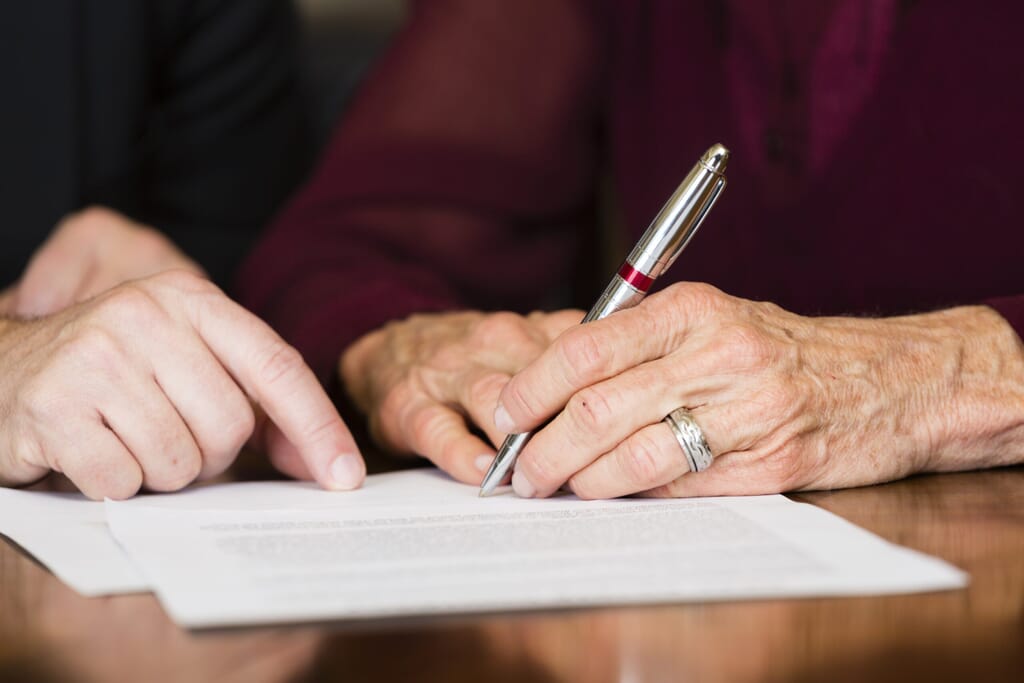Powers of attorney including lasting powers of attorney
Lasting Powers of Attorney Solicitors & Guidance

Frequently Asked Questions
-
Do I need an LPA?
If you lose mental capacity (because you are unable to understand and make decisions for yourself), it is difficult for anyone to take care of your property and finances or make decisions about your health and care on your behalf if you do not have a valid EPA or LPA in place. If no EPA or LPA has been made and you lose mental capacity, the Court of Protection requires the person or persons who wish to help you to apply for a deputyship order before it will grant that person or persons the authority to act on your behalf. This can be a lengthy and costly exercise, which causes problems if, as is often the case, funds need to be made available to pay for expenses (such as care costs) or decisions need to be taken quickly. The orders required from the Court may become complicated and more costly if you hold joint property, have business assets or have a complex family dynamic, for example. It is only usually possible to obtain a deputyship order in respect of property and financial affairs as the Court only rarely make health and care orders.
LPAs can, therefore, be seen as an insurance policy, which guard against applications to the Court being required. As nobody can predict whether mental incapacity will affect them and if so, when, we strongly recommend that you make and register LPAs as they allow you to control who will act on your behalf if you lose capacity and how this person or persons should act on your behalf.
-
What types of LPA are there?
- LPA for financial decisions (otherwise known as LPA for property and financial affairs or LP1F)
The LPA for financial decisions allows you (the donor) to appoint one or more persons (your attorney(s)) to make decisions on your behalf relating to your property and financial affairs.
You have the option of granting as wide or as restrictive powers as you wish, which can include anything from managing your bank account and paying your bills, to selling your home. An LPA for financial decisions also allows you to appoint attorney(s) to manage your property and finances regardless of whether you have lost capacity or not, which can be useful. Your attorney(s) can only act on your behalf after the LPA has been registered with the Office of the Public Guardian (OPG).
2. LPA for financial decisions (otherwise known as LPA for property and financial affairs or LP1F)
The LPA for financial decisions allows you (the donor) to appoint one or more persons (your attorney(s)) to make decisions on your behalf relating to your property and financial affairs.
You have the option of granting as wide or as restrictive powers as you wish, which can include anything from managing your bank account and paying your bills, to selling your home. An LPA for financial decisions also allows you to appoint attorney(s) to manage your property and finances regardless of whether you have lost capacity or not, which can be useful. Your attorney(s) can only act on your behalf after the LPA has been registered with the Office of the Public Guardian (OPG).
-
Who can be my attorney?
You must only appoint people that you can trust to act as your attorney(s). You should consider the following categories of people when deciding who to appoint:
• family members
• friends
• professional advisors such as your solicitor or accountant: this category is generally only appropriate for LPAs for financial decisions.You should also consider practical issues such as whether it would be better to have an attorney who is geographically close to you (this might be less relevant, for example, for an LPA for financial decisions if you deal with all your finances online). You should also consider the time, skill and expertise that each attorney has in relation to what they may need to do. If you choose to appoint professional attorney(s) you will need to pay them for acting as an attorney but you can also agree to pay other attorney(s) if you wish.
Attorney(s) must be aged 18 or over and have mental capacity to make decisions. They must not be bankrupt or subject to a debt relief order.
We recommend that you appoint at least two attorney(s) to act, or if you appoint an attorney solely to include replacement attorney(s).
-
How can I control what my attorney(s) can and cannot do?
Restrictions imposed by law
The law limits what your attorney(s) can do and how they must act. The most important rule is that an attorney is only allowed to act in your best interests and in accordance with the Mental Capacity Act 2005 (MCA) and the MCA Code of Practice. Another important rule for an attorney for financial decisions is that they must keep accounts and be able to submit them to the OPG if requested.
Other rules include:
• Strict limits on the kinds of gifts that an attorney for financial decisions can make on your behalf. For example, they can make gifts on customary occasions (for example, birthday, Christmas and weddings) but they cannot make gifts for inheritance tax planning or pay school fees for grandchildren without making an application to Court of Protection.
• The law against euthanasia and assisted suicide. Your attorney cannot break the law even if you try to allow them to do so in your LPA for health and care decisions. -
Should an LPA be registered with the OPG and how is this done?
You or your attorney(s) can register your LPA with the OPG at any time. However, your attorney(s) can only use your LPA to make decisions on your behalf after it has been registered. You will need to decide whether you want your LPA to be registered immediately.
If you wish to register your LPA immediately, you or your attorney(s) will need to complete sections 12 to 15 of the LPA and give notice to any people to be notified using form LP3. You will also need to pay the OPG registration fee of £82. If the LPA will not be registered immediately, these sections of the LPA form should be left blank until you are ready to register. We will assist you with this process if you make the application to register your LPA.
The advantages of immediate registration are that:
• The OPG checks the LPA when it is about to register it so any problems will be found immediately. If the LPA is not registered until you have lost capacity, you will not be able to rectify any errors and the LPA may be invalid. That is, your attorney(s) will not be able to use it.
• The LPA is ready to use if it is needed in the future. As the registration process can take over 20 weeks, delaying registration until you lose mental capacity can cause an inconvenient delay when the LPA is required.
The disadvantages of immediate registration are that:
• The registration fee of £82 per LPA must be paid straight away.
• Over time, you may decide that you want to revoke (i.e. cancel) your LPA and make a new one. If you have already registered your LPA, you will need to pay a second registration fee to register the new LPA.
-
Is it possible to make an LPA for someone after they have lost capacity?
An LPA cannot be made unless the donor has capacity. If there is no LPA in place at the time that capacity is lost, the only way that someone can be appointed to act on their behalf either for financial decisions or health and care decisions if via an application to the court of protection to appoint a deputy (a deputy is like an attorney but appointed by the court of protection with powers specifically granted by the court).
For more information about applying to appoint a deputy click here
-
How is an LPA used by my attorney(s) after registration?
Your attorney(s) can use a registered LPA for financial decisions either before you lose mental capacity (with your agreement) or afterwards. Your attorney(s) can only use a registered LPA for health and welfare after you have lost mental capacity.
When your attorney(s) start using the LPA, you or they may need to provide evidence of their authority to act for you to banks, utility companies, the local authority, your doctor, care homes and other third parties. The requirements of each individual or organisation will vary. For example, some may need to see the original registered LPA while others may only want a photocopy. You or your attorney(s) should avoid sending the original registered LPA by post to a third party and offer to supply a solicitor certified copy instead. We recommend that you obtain enough solicitor certified copies for you or your attorney(s) to send to third parties. We suggest that these certified copies are safeguarded by you and that you let your attorney(s) know where they are located to save your attorney(s) applying to us for further certified copies at a later stage, which they may be charged for. We will supply you with one solicitor certified copy of each type of LPA when your LPA(s) have been registered but you can let us know if you would like us to supply you with additional certified copies.
-
Who checks that my attorney(s) are acting properly?
You should not appoint anyone that you do not trust to act as your attorney. The OPG oversees attorney(s) and deals with any complaints that arise about the way that attorney(s) are exercising their powers.
We will send guidance to your attorney(s) when we send them section 11 documents to sign so that they are aware of their duties and responsibilities under your LPA(s) before they complete their declarations in their sections of your LPAs. Useful guidance for attorney(s) can also be found on the government website (gov.uk).
If you would like to instruct Maitland Walker to prepare LPAs on your behalf, or if you require further information, please contact us.
Blog
Talk it over
with an expert
with one of our friendly and professional team





